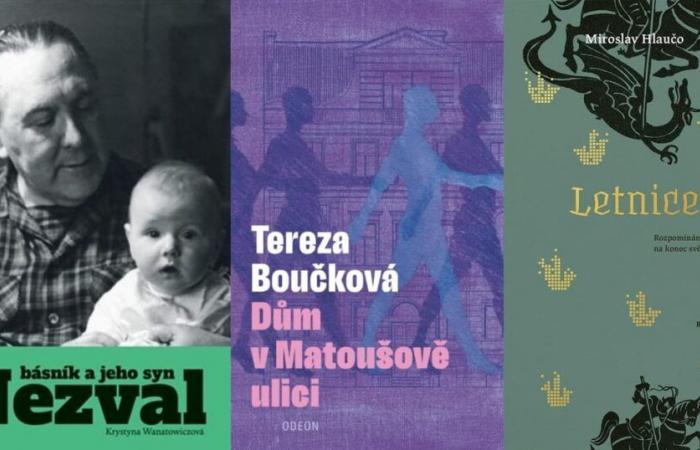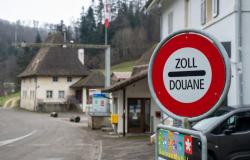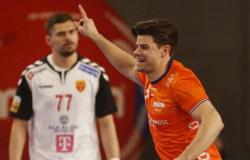Photo: Radio Prague Int.
The longevity of an investigation
The Book of the Year survey has a long tradition. It was first launched in 1928 but this initiative was subsequently interrupted first by the Nazi occupiers and then by the communist dictatorship which succeeded it. The tradition of annual Lidové noviny surveys only resumed in 1991. Today, we are therefore in its 34th edition since the fall of the communist regime in Czechoslovakia and this initiative continues despite the new situation of the Lidové noviny newspaper which has only existed in electronic form since last year. Also towards the end of the year, the newspaper addresses around two hundred personalities from literary, artistic, political and public life, inviting them to indicate the three best books of the past year with short comments.
Krystyna Wanatowiczová|Photo: Adam Kebrt, Czech Republic
This time it was the writer Krystyna Wanatowiczová who won first place and whose book entitled Nezval. Básník a jeho syn – Nezval. The Poet and His Son was proclaimed Book of the Year. We brought you this voluminous biography of Vítězslav Nezval, who was not only a great poet but also a great opportunist, as part of this column at the end of last year. So today we would like to draw your attention to the works that ranked second and third.
The secret history of a house
It is a rental house in the Smíchov district of Prague which is the scene of the novel which occupied second place in Lidové noviny’s investigation. Its author Tereza Boučková called it simply Dům v Matoušově ulici – The house on Matoušova Street. It is in this building that the author spent her childhood. Much later, she discovered that the past of her tenants was very rich in events of all kinds and often tragic – and that among these neighbors there were individuals of good and bad character. She remembers the impulse that gave her the desire to write a novel based on the turbulent history of her house:
Tereza Boučková|Photo: Adam Kebrt, Czech Republic
“The idea of writing this book came to me when an ambulance took our neighbor who was the last witness to the history of this house to the hospital. Since I’m the type of writer who looks for stories that they strive to breathe new life into, I began to realize that this could be the theme of a book. So I started doing research during which crises alternated with new impulses. All in all, it was a very difficult writing process. I had already wanted to exploit this theme a few years ago but I had absolutely no idea how to go about it. Ultimately, the writing of this novel took place over a year of very intense writing. »
‘The house on Matoušova Street’|Photo: Odeon
It is therefore a partly autobiographical book but which also reflects the lives of the other tenants, often deeply affected by the fallout of the great story. It is an evocation of the past in which current events nevertheless intervene. And we are surprised to see how many adventures, how many human destinies, how many very diverse characters have accumulated in a single house. Among these people were, among others, two famous actresses, Zita Kabátová and Alena Vránová, as well as the future president Václav Havel and the director Miloš Forman.
Thanks to Tereza Boučková’s book, the house on Matoušova Street therefore becomes a kind of monument in which past and present meet and which draws from oblivion what should not be forgotten. We are going to devote a special broadcast to this unusual chronicle.
Daily miracles
It is a novel set in a Czech village at the beginning of the 20th century which ranked third in Lidové noviny’s survey. The novel is titled Letnice – Pentecost and its author Miroslav Hlaučo (1967) is a biotechnology researcher. He has been writing since childhood, but it is only now, approaching sixty, that he has published his first novel. And it’s a revelation. He says:
-Miroslav Hlaučo|Photo: Kateřina Cibulka, CRo Plus
“Although I deal in an indirect way with the means of healing people, I think it is linked in some way to literature. Literature itself helps to heal people, to make them better. Literature can bring them calm and the desire to reflect on themselves, which I consider to be a kind of therapy. »
According to Miroslav Hlaučo, literature allows us to live another life even if we do not have this possibility in real life. It gives us the possibility of taking paths that we would not take in reality. Life is, for this writer, full of miracles and this is also reflected in his novel:
‘Pentecost’|Photo: Easter
“Miracles are not the phenomena conjured up by a magician to be presented on a stage or under a circus tent, but they are the things you encounter every day. However, you only realize later that these were miracles. Often, it’s only after you think about what such a thing meant that you realize it was magical. »
In his novel, the author takes us to a village where people are isolated from the outside world and whose lives are still deeply marked by ancient customs and myths. However, they begin to realize that times are changing and a new era is coming. The time of daily miracles is coming to an end and the era of technical miracles is dawning.
Critics have found many elements of magical realism in this novel. Moreover, Miroslav Hlaučo admits to liking Gabriel García Marquez, the great representative of this literary movement. Among his other favorite authors are Alejo Carpentier, Edgar Lawrence Doctorow but also Karel Čapek and Vladislav Vančura. Tradition and progress are two major themes in Miroslav Hlaučo’s novel and the writer does not see them as two antagonistic phenomena. For him both are important and alive and one does not exclude the other. He says: “I myself am a conservative who loves progress and believes in it. »
Three works translated from French
Let us add that among the books most often cited by survey participants are also three works written in French and translated into Czech. It is not surprising to find among these books the novel The Identity of Milan Kundera translated by Anna Kareninová and finally released by Atlantis, 27 years after its publication in France.
Photo: Argo, Host, Vyšehrad
The same writer is also the protagonist of a book that its author Florence Noiville titled Milan Kundera: Writing, what a funny idea. The French writer and journalist who worked alongside Kundera during the last third of her life, paints with sensitivity and tenderness a portrait of the great writer who “took a vow of media silence”. The Czech translation of his book was published by Host.
The third book translated from French and much noticed by the participants in the survey, is entitled HP Lovecraft: Against the World, Against Life. It is an essay that Michel Houellebecq devoted to the famous American author of horror literature and in which he analyzes in a very personal way the hostility of Howard Philips Lovecraft for the modern world and for life in general.






